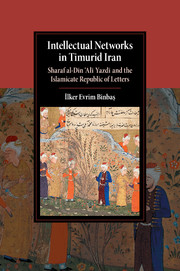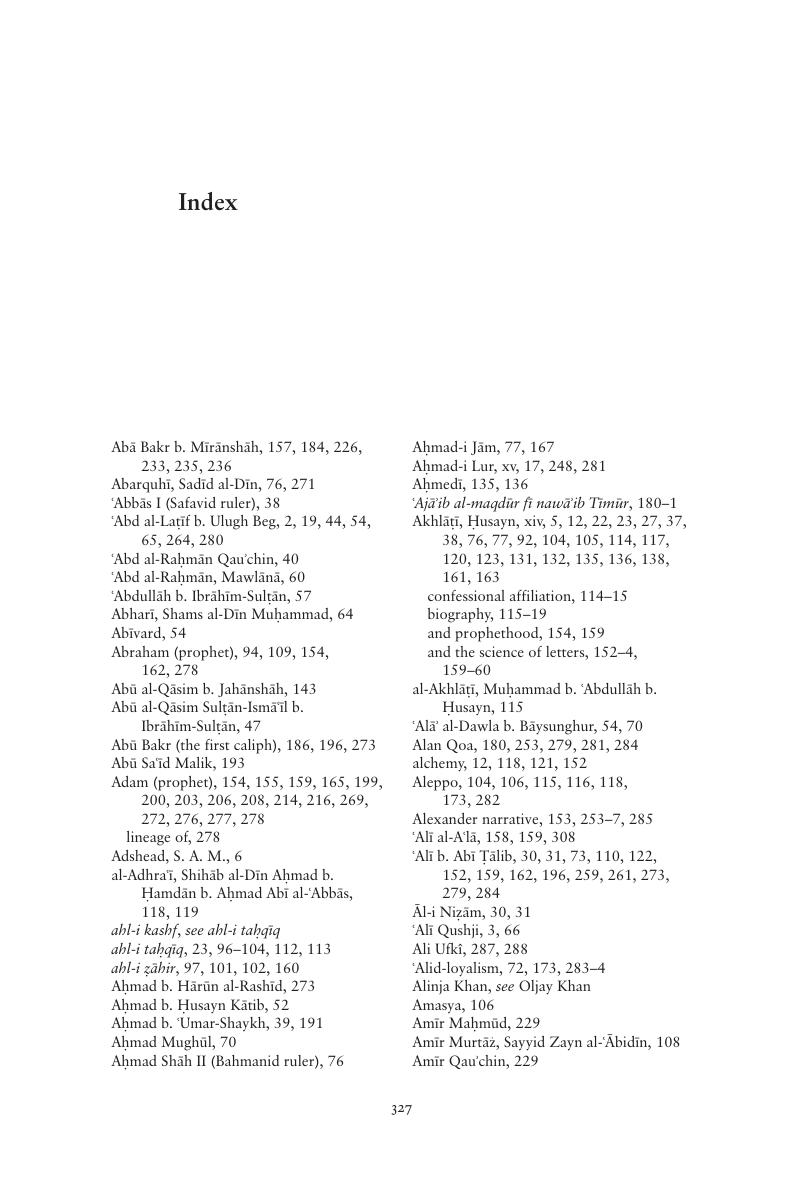 Intellectual Networks in Timurid Iran
Intellectual Networks in Timurid Iran Book contents
- Half title page
- Cambridge Studies in Islamic Civilization
- Title page
- Copyright page
- Contents
- Contents
- Book part
- Notes on transcription
- Chronology of events
- Glossary
- 1 Introduction
- 2 The making of a Timurid intellectual
- 3 Informal intellectual networks in Timurid Iran
- 4 The prophet of Cairo and the master of Isfahan
- 5 The articulation of a princely political discourse
- 6 Writing history in the Timurid Empire
- 7 The king’s two lineages: the evolution of a politico-theological idea
- 8 Epilogue
- Book part
- Bibliography
- Index
- Series page
- References
Series page
Published online by Cambridge University Press: 05 May 2016
- Half title page
- Cambridge Studies in Islamic Civilization
- Title page
- Copyright page
- Contents
- Contents
- Book part
- Notes on transcription
- Chronology of events
- Glossary
- 1 Introduction
- 2 The making of a Timurid intellectual
- 3 Informal intellectual networks in Timurid Iran
- 4 The prophet of Cairo and the master of Isfahan
- 5 The articulation of a princely political discourse
- 6 Writing history in the Timurid Empire
- 7 The king’s two lineages: the evolution of a politico-theological idea
- 8 Epilogue
- Book part
- Bibliography
- Index
- Series page
- References
Summary

- Type
- Chapter
- Information
- Intellectual Networks in Timurid IranSharaf al-Dīn ‘Alī Yazdī and the Islamicate Republic of Letters, pp. 340Publisher: Cambridge University PressPrint publication year: 2016


